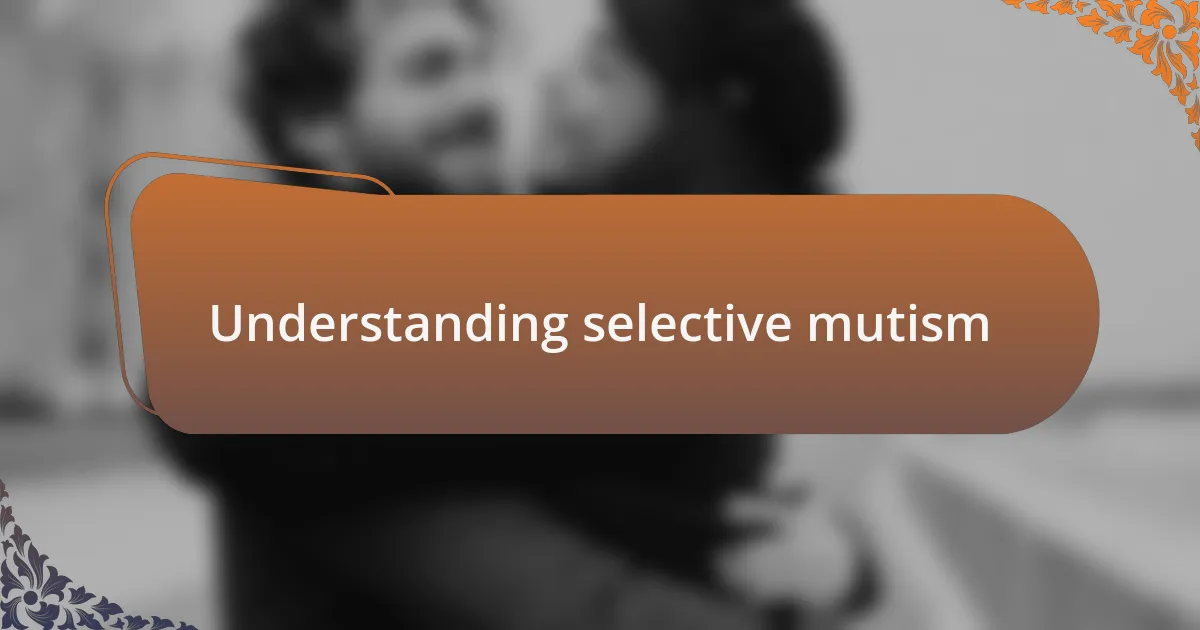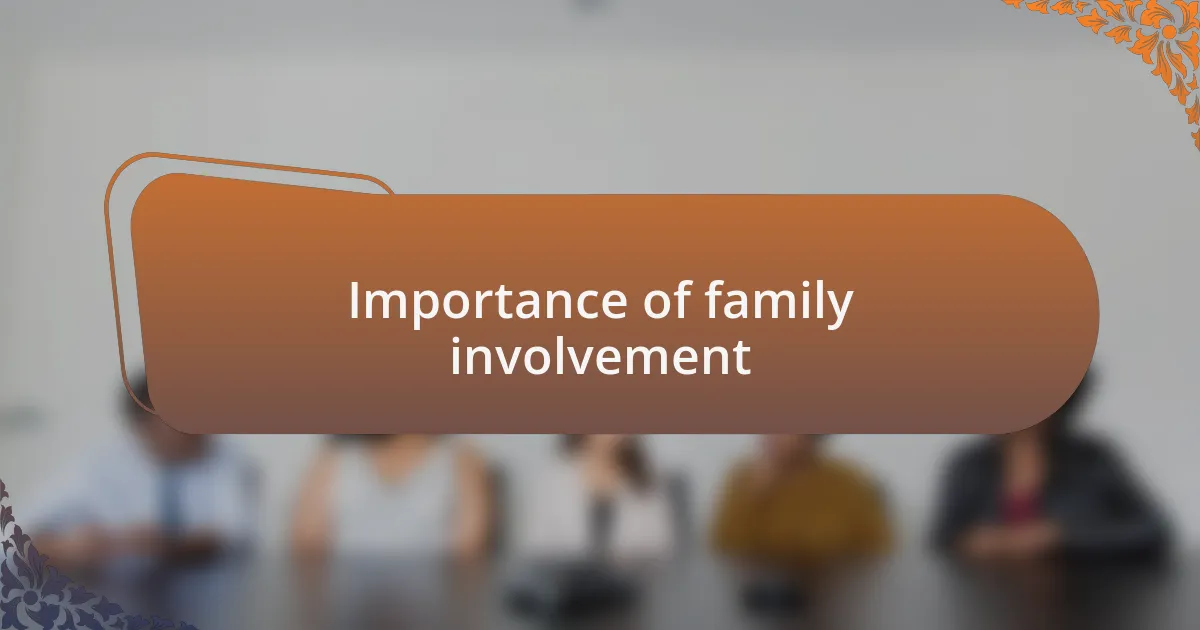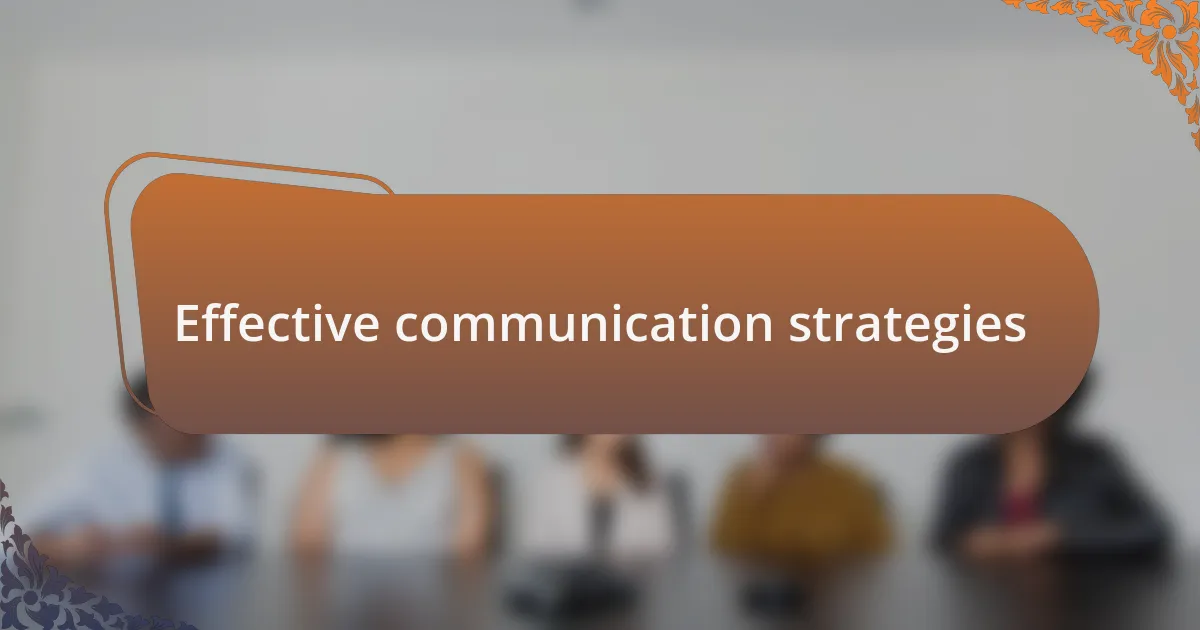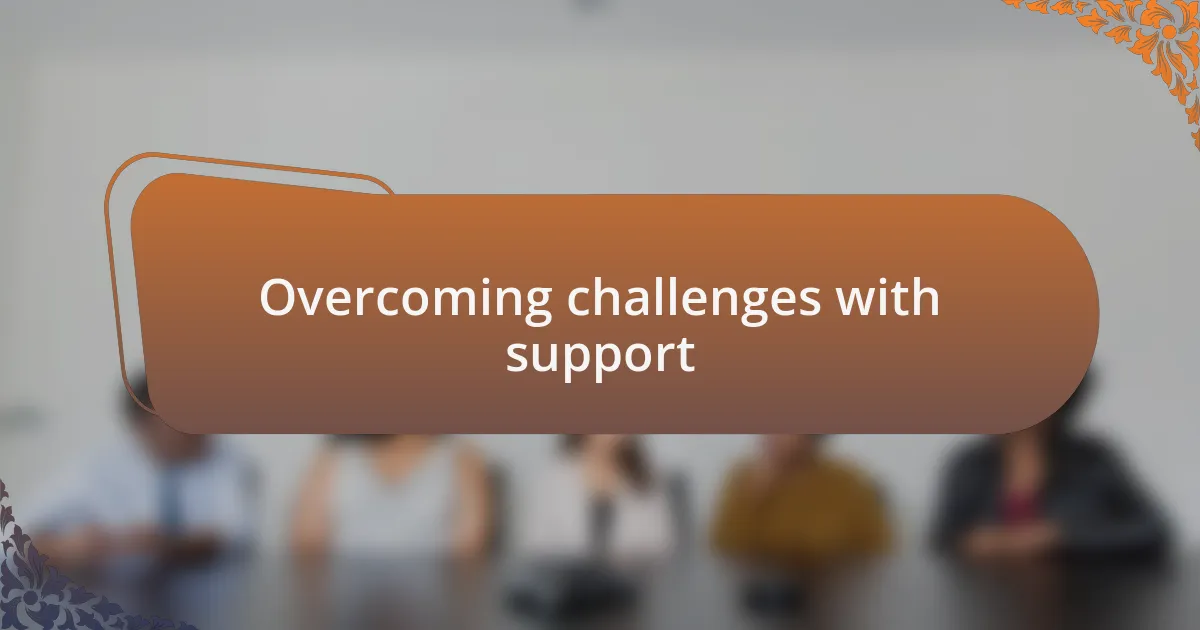Key takeaways:
- Selective mutism is an anxiety disorder affecting communication in social settings, requiring empathy and understanding from family and friends.
- Family involvement is crucial for children with selective mutism, as supportive dynamics can foster confidence and effective communication.
- Open dialogue within families and celebrating small victories greatly enhance a child’s willingness to express themselves.
- Patience and creating safe spaces for communication help children gradually overcome the challenges of selective mutism.

Understanding selective mutism
Selective mutism is a complex anxiety disorder that manifests mainly in social settings, where an individual, often a child, finds it incredibly challenging to speak despite having the ability. I remember observing how my niece, who usually had so much to say at home, would freeze up at family gatherings, her voice reduced to silence even when she desperately wanted to join the conversation. Have you ever noticed how anxiety can sometimes hold someone back in ways we didn’t expect?
Understanding this condition goes beyond just recognizing its presence; it requires empathy and awareness of the internal struggles that individuals face. I recall a friend’s son who exhibited signs of selective mutism in preschool. It broke my heart to see him wanting to communicate but feeling paralyzed by fear. How can we create environments where children feel safe to express themselves freely, even when the world feels daunting?
The emotional weight of selective mutism can be overwhelming, often leading to feelings of isolation for both the affected individuals and their families. Having witnessed the emotional rollercoaster it brings, I often ask myself: how can we support our loved ones in overcoming this hurdle? By fostering understanding and patience, we can help bridge the gap between silence and expression, making a significant difference in their journey.

Importance of family involvement
The role of family in addressing selective mutism cannot be overstated; it is often where a young person feels the safest. I remember a family friend whose daughter struggled deeply with speaking at school. They made it a priority to include her in family discussions, creating a space where she felt comfortable to express herself without judgment. Isn’t it fascinating how the familiar environment can nurture a child’s confidence to speak?
When families engage and participate actively in the rehabilitation process, it significantly enhances the chances of overcoming this disorder. One instance that stands out to me involved a cousin who dedicated time each week to role-play with her son. By simulating social situations at home, she made it less daunting for him to interact outside. How powerful can it be when parents take an active role in a child’s journey toward vocal expression?
Involving family members not only provides emotional support but also encourages collaboration among siblings, which can lead to a more unified approach to tackling the challenges of selective mutism. I saw this firsthand as my sister’s children rallied together to cheer on their younger brother, who felt anxious about speaking. It reminded me that a cohesive family unit can foster a sense of belonging and ease the pressure on those struggling to communicate. What are some ways your family might come together to support someone grappling with their voice?

Research on family dynamics
Research has shown that family dynamics play a crucial role in shaping a child’s communication abilities, especially in cases of selective mutism. For instance, I recall a study where families that practiced regular, open dialogue reported fewer instances of anxiety during social situations. It made me ponder how essential it is for children to observe their family members communicating effectively and feeling at ease with one another. Doesn’t it make sense that a supportive home environment can lead to better outcomes in social settings?
Moreover, several researchers emphasize that consistent family engagement can create a safe space for children, significantly impacting their willingness to speak. I witnessed this during a family gathering where my niece, previously silent around others, began to share her thoughts aloud amidst her relatives’ encouragement. It struck me then, how vital it is for families to celebrate even the smallest achievements in vocal expression. Have you seen how a little praise can transform a child’s confidence?
Additionally, studies indicate that family structure—such as sibling involvement—can influence a child’s communication development positively. I’ve seen siblings naturally take on roles that encourage each other’s growth, akin to how my younger brother often inspired me to express myself in group settings. This dynamic within a family can often be the catalyst for overcoming barriers like selective mutism. How might your own family harness these relationships to bolster each other’s ability to communicate?

Personal experiences with family roles
Family roles can deeply influence a child’s journey with selective mutism. I remember a time when my sister decided to take on the role of my biggest cheerleader during my own struggles with communication. She would gently encourage me to speak by creating playful scenarios where we’d pretend to interview each other, which not only made me laugh but also eased my anxiety. How powerful it is when family members can gently push us out of our comfort zones!
In another instance, I was observing my cousin, who had selective mutism during childhood. His older brother often would speak on his behalf in social situations, sometimes overshadowing him. However, the moment their parents encouraged the older brother to step back, I noticed a remarkable change. My cousin began to speak, albeit softly at first, but it was a breakthrough. It really highlighted to me how vital it is for families to recognize and adjust their roles for the sake of everyone’s growth.
Reflecting on these experiences, I can’t help but wonder how different my own path would have been if my family hadn’t been so attuned to each other’s needs. Family members often play dual roles—not just caretakers but also catalysts for healing and development. In what ways can your family adapt to ensure everyone has a voice?

Effective communication strategies
Effective communication is essential when addressing selective mutism, especially within a family context. I remember a family gathering where, rather than forcing me to engage with strangers, my parents dedicated time to creating a safe space. They initiated small group conversations, slowly including me so I could share my thoughts without overwhelming pressure. That thoughtful approach made a world of difference, reinforcing the idea that comfort often fosters communication.
Another communication strategy that proved effective was the use of nonverbal cues. Once, during a particularly tense moment, my mother would give me the reassuring smile or a gentle nod when I hesitated to speak. That small gesture communicated her support and encouraged me to try. It makes me realize how vital understanding this aspect of communication can be for families, as it opens a door for dialogue without demanding it outright.
Have you ever considered the impact of listening rather than speaking? I recall a family member who practiced this approach by simply allowing me to express my feelings without interruptions. That environment nurtured my confidence, making me feel valued and heard. In this journey, it’s crucial to remember that sometimes the most effective communication is not verbal at all, but rather a profound presence that invites someone to share their voice.

Overcoming challenges with support
Overcoming the challenges of selective mutism isn’t something I tackled alone; family support played an essential role. I recall a time when my parents researched resources together about selective mutism. It felt reassuring to know they were not just passive observers, but active participants in understanding my experience. This collaboration created an atmosphere of empathy, making it easier for me to face the challenges head-on.
In moments when I felt overwhelmed, my family’s presence was grounding. I remember my brother sitting with me in silence while I built up the courage to speak to a family friend, offering companionship rather than pressure. That unspoken bond provided a buffer against anxiety. Have you ever found comfort in someone’s silent support during a tough time? I certainly have, and it becomes evident how much a supportive family dynamic can ease the process of overcoming hurdles.
Moreover, the small, everyday gestures of support from my family often created a ripple effect of confidence. I think back to a cozy evening when my sister invited me to share my thoughts about a new movie. Instead of jumping into group discussions, she framed it as a one-on-one conversation, offering me a safe haven. That thoughtful invitation not only made me feel important but also reinforced the belief that I could gradually engage with others. Family involvement truly shaped my journey toward overcoming selective mutism.

Lessons learned from my journey
Lessons learned from my journey
Through this journey, I realized how crucial open communication is within a family. I remember a day when my parents organized a family meeting to discuss my selective mutism in a candid way. They asked me how I felt about my struggles, which made me feel valued and understood. Have you ever felt a weight lift off your shoulders just from sharing your thoughts? That’s exactly how I felt. It taught me that addressing issues openly can foster a strong support system.
Another significant lesson was the power of patience. There were times when I would try to speak, only to retreat back into silence. My dad, noticing my frustration, would gently remind me that progress takes time. One evening, he brought out an old scrapbook filled with memories, and we reminisced together. This simple act of distraction allowed me to relax and eventually open up about my day. It reinforced my understanding that healing is often a gradual process and that every little step counts.
Finally, I learned the importance of celebrating small victories. One memory that stands out is when I finally spoke up during a family dinner, even if it was just to share my favorite dessert. The cheers and encouragement from my loved ones made me realize that each moment of courage deserved recognition. Have you ever felt elated by a small achievement? That feeling can be a powerful motivator. It became clear to me that acknowledging progress, no matter how small, fuels the journey toward overcoming obstacles like selective mutism.